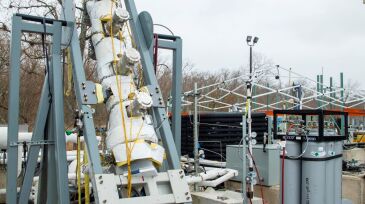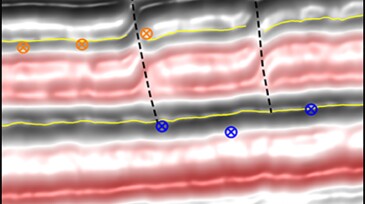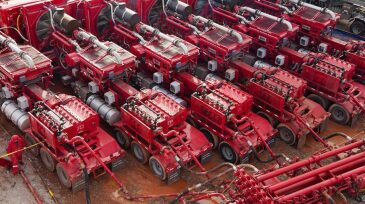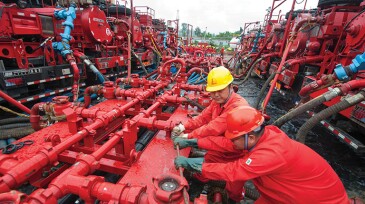Fracturing/pressure pumping
The agreement follows the discovery of 724 million BOE in unconventional oil and gas reserves in November.
Evolution Well Services will deploy electric pressure pumping units for Northeast Natural Energy, which operates in the Marcellus Shale.
Major increases in hydrocarbon production require both incremental and revolutionary technologies, industry leaders said during the SPE Hydraulic Fracturing Technology Conference.
-
Ease of use and crowd-pleasing economics are driving US shale producers toward wet-sand completions. Chesapeake Energy is among the latest converts and explains why it wants to use wet sand on every new well.
-
Offset well-pressure measurements in the Permian Basin are analyzed to evaluate if a fracturing job is overstimulated.
-
The authors use machine-learning methods combined with geomechanical, wellbore-trajectory, and completion data sets to develop models that predict which stages will experience difficulties during completion.
-
ExxonMobil submitted a proposal to Colombian authorities to develop a hydraulic fracturing pilot project in the Magdalena Basin. Colombia wants to drastically raise its declining reserves-to-production ratio by tapping into shale.
-
New Testing Facility Built To Prove Whether Natural-Gas Foam Is Shale Sector's Next Fracturing FluidA 6-year R&D project concludes with the completion of a technology kit designed to study how combining highly pressurized natural gas and water could be a holistic alternative to traditional hydraulic fracturing.
-
A pressure-monitoring technique using an offset sealed wellbore as a monitoring source has led to advancements in quantifying cluster efficiencies of hydraulic stimulations in real time.
-
Is it possible to fracture a well using power off the grid? The answer is yes, but sharp electric engineers are required.
-
The two-well stimulation approach is delivering big savings to first adopters. A new report from Rystad highlights how the development is taking shape.
-
In striving to boost production of shale gas and tight oil, China is trying enhanced-hydraulic-fracturing technology and real-time data analysis in the Sichuan shale basin. In Daqing’s tight-oil fields, an alternative fracture-completion strategy and post-stimulation flowback technology has been tested.
-
Murphy Oil has created a work flow to normalize the tags it uses when collecting data on its hydraulic fracturing stages. The work flow described here empowers decision makers, who no longer wait for hours to collect data or waste hours cleaning and preparing data for analysis.













